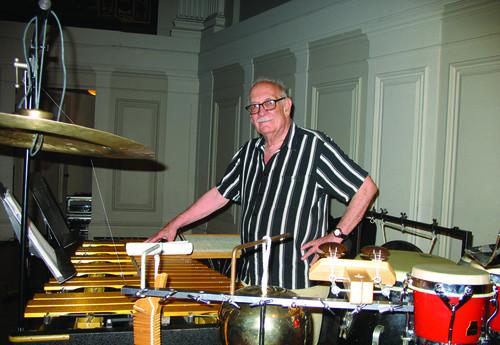Reporter | Pan Wenjie
Edit | Jiang Yan
1
According to Bridge Records President Becky Starobin, avant-garde composer George Crumb died at home on February 6, local time. Cram challenges musicians and listeners with his tradition-breaking scores – he adds a lot of strange things to his music that embody the original spirit of the avant-garde. The New York Times obituary said that Cram rejected the 12-tone technique of Western modern music and created a concise and colorful work that showed a rich range of emotions from calm to nightmare. The Washington Post obituary called his score "composer's mind and the poet's hand."
Cram's compositions were influenced by Eastern music and Western composers such as Mahler, Debussy, Bartók and Messian in the late 19th and early 20th centuries, but he described himself as a "composer of complete intuition".
Cram was most active in the 1960s and 1970s, when people once ranked him alongside John Cage. In 1968, Cram's orchestral suite Echoes of Time and The River won the Pulitzer Prize for Music, in which his score stated that a portion of the musicians in each movement moved on the stage in a prescribed pattern and direction.
Much of Cram's compositions were influenced by the Spanish poet Federico Garcia Lorca, who in 1970 inspired the song "Ancient Voices of Children", inspired by Lorca's work. There are a lot of disturbing vocal effects in the music, as well as oboe, Japanese temple bells, Tibetan manna stones, mandolin, harps and toy pianos.
Listed by David Bowie as one of his favorite albums, Black Angel (1970) is also Cram's masterpiece, a work that reflects the Vietnam War. In part of the first movement, "Threnody I: Night of the Electric Insects," Cram also asked for the music to be "pure noise," which led to the work later being used on the soundtrack of the supernatural horror film The Exorcist.
In 1971, a marine scientist recorded whale calls inspired his Vox Balaenae (Whale Sound), in which whale calls were incorporated. In addition, Cram designated the work to be performed under blue lights, and the performers were to wear black masks to symbolize the "relentless power of nature". In this work, he uses various techniques, such as tapping the strings with a paper clip, to create a spooky sound quality.
In addition, Cram has created notations in the form of famous graphs, which are drawn on oversized paper in complex shapes and spirals.

Image source: georgecrumb.net
In the 1980s and 1990s, Cram encountered creative bottlenecks. But after 2000, new energy was found. During this period, he composed a series of American song collections. In 2001, he won the Grammy Award for Best Contemporary Classical Composition for Star-Child (1977, revised in 1979), which required a large orchestra, a children's choir, eight percussionists playing dozens of instruments, and four conductors.
Before his death, a University of Michigan publication asked Cram how he wanted his work to be appreciated by listeners. "Listen with your ears open and try to think of them as a whole," he said. "There is distress and love, and even pain, in music; it is a mixture of everything in our world".
Resources:
https://www.washingtonpost.com/obituaries/2022/02/08/george-crumb-avant-garde-composer-dead/
https://www.nytimes.com/2022/02/06/obituaries/george-crumb-dead.html
https://mp.weixin.qq.com/s/572l_HakVANFkNHBUqzOoQ